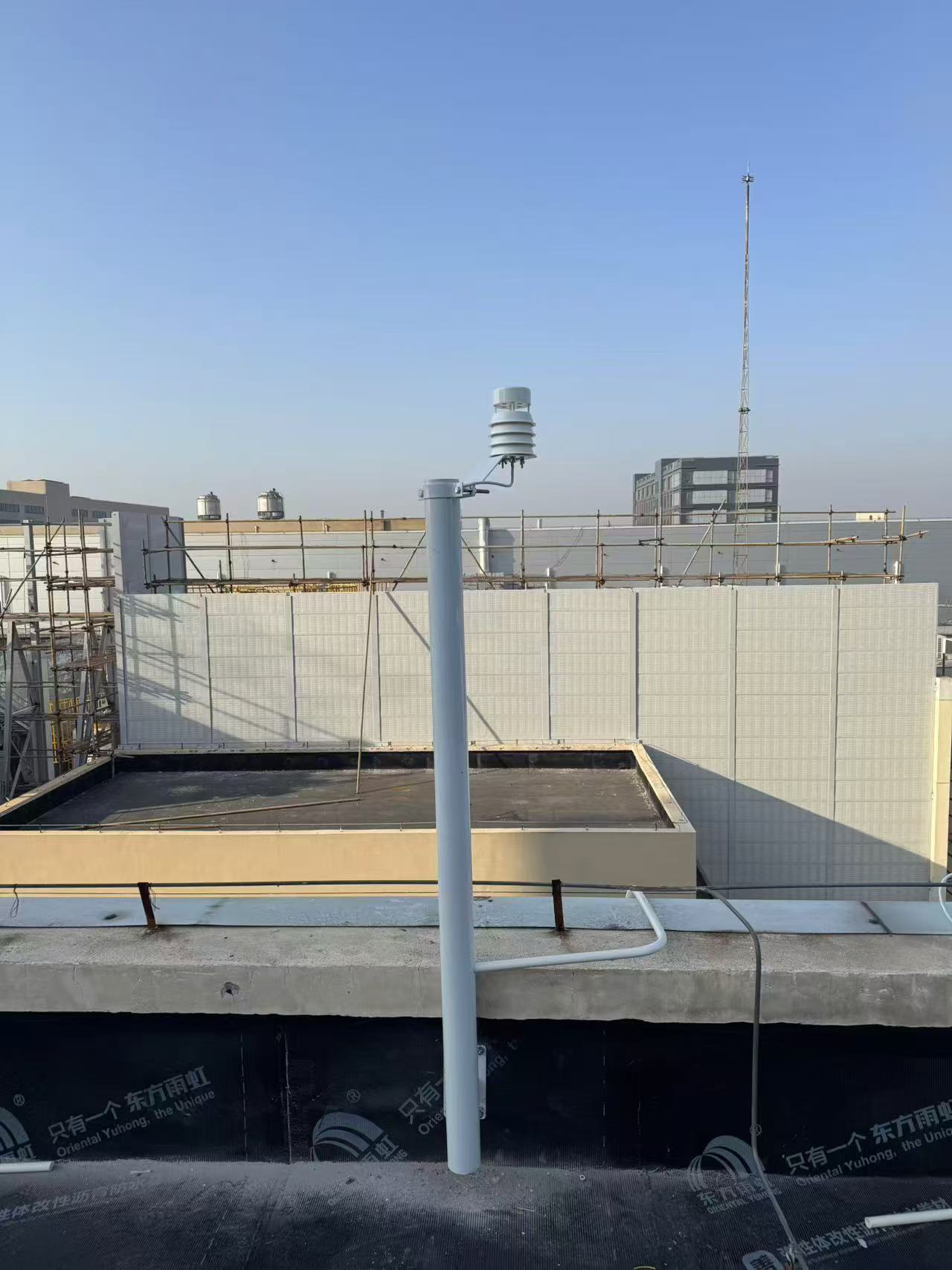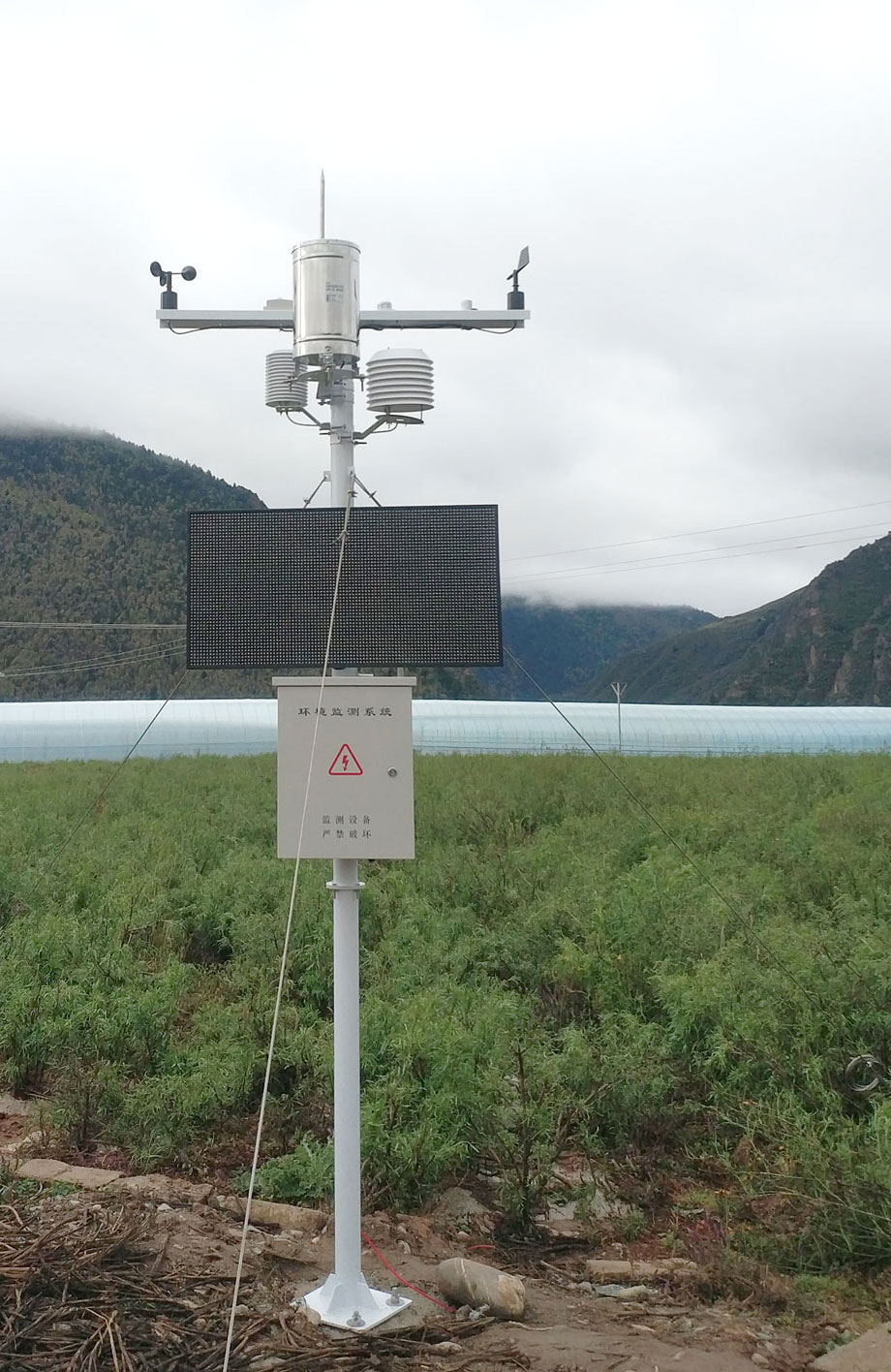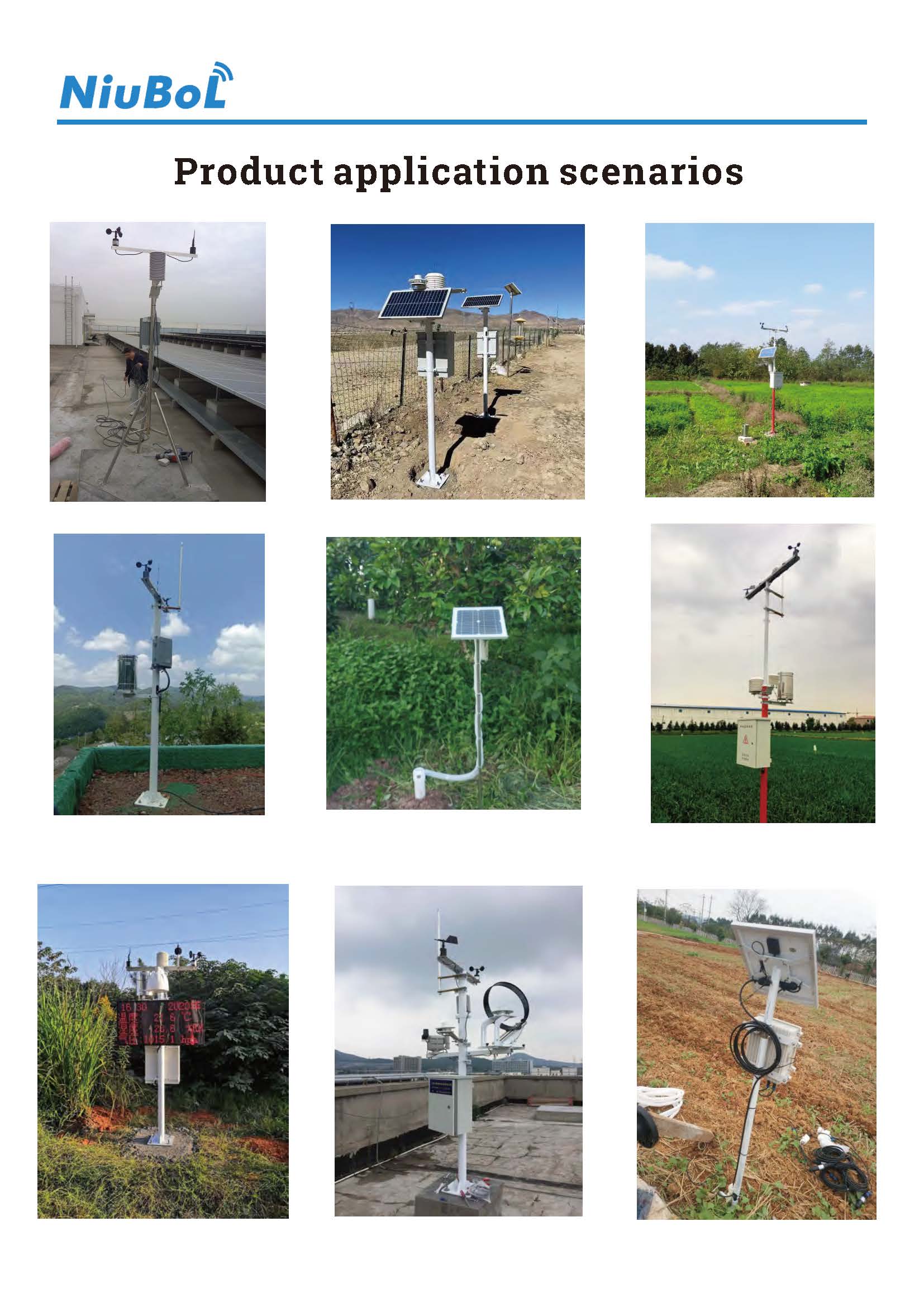

— Blogs —
—Products—
 Consumer hotline +8618073152920
Consumer hotline +8618073152920 WhatsApp:+8615367865107
Address:Room 102, District D, Houhu Industrial Park, Yuelu District, Changsha City, Hunan Province, China
Product knowledge
Time:2025-02-16 17:28:24 Popularity:132
Small meteorological stations (micro weather stations) have become an ideal choice in various fields such as agriculture, education, research, environmental monitoring, and industrial manufacturing, thanks to their compact design, high-precision monitoring capabilities, and flexible configuration. With powerful functionality and adaptability, small meteorological stations are widely used around the world. Below is a detailed discussion of the core advantages, components, and characteristics of small meteorological stations.
Small meteorological stations are designed for outdoor use in complex environments, with protection against wind, rain, dust, and corrosion. They ensure stable operation even under extreme weather conditions. Users can customize data collection frequencies to meet different needs, ranging from short-term fluctuation monitoring to long-term trend analysis.
The stations support storage expansion and quick data export through USB interfaces. This efficient data management approach simplifies the process of saving and transferring historical data, making it easier to analyze or share.
Supporting various wireless communication technologies such as 4G/5G and LoRa, data can be transmitted in real-time over long distances. Users can view monitoring data at any time via smartphones or other devices and adjust settings as needed, enhancing system interactivity and responsiveness.
Featuring energy-efficient designs, the stations are capable of running continuously in unmanned conditions. Whether in remote areas or urban environments, they provide reliable data support.
This includes the base support, vertical rods, and top beams, forming a stable installation platform. The support system elevates sensors to optimal heights to avoid interference from the ground, while ensuring stability in harsh conditions such as strong winds.
Depending on monitoring needs, various sensors can be configured, such as temperature, humidity, wind speed, wind direction, radiation, and rainfall sensors. These sensors are distributed across the support system to accurately capture environmental parameters, providing comprehensive meteorological data.
The data processor is the core component of the meteorological station, responsible for importing, analyzing, and outputting data collected from sensors. Advanced algorithms ensure the accuracy and practicality of the data, making it suitable for scientific research, educational purposes, and agricultural decision-making.
The power supply system is key to the continuous operation of an automated meteorological station, ensuring that the device runs 24/7 without human intervention. It typically consists of the main power source (grid electricity), backup batteries, and an uninterruptible power supply (UPS).
- Main Power Supply: Connects to the grid to provide stable electrical power.
- Backup Battery: Provides temporary power support in case of power outages, ensuring uninterrupted data collection.
- UPS System: Ensures seamless switching between the main power and backup battery, protecting the equipment from power fluctuations.

Small meteorological stations are capable of operating in a wide range of harsh environments, including deserts, mountains, and tropical rainforests. Their low-power design and high stability make them ideal for unmanned monitoring.
Made from stainless steel and featuring corrosion-resistant designs, the equipment not only extends its service life but also enhances its appearance, making it suitable for various installation environments.
Built-in lightning protection and anti-electromagnetic interference systems ensure that the station operates normally even during thunderstorms or in strong electromagnetic environments. This provides additional assurance for data accuracy.
Both hardware and software adopt a modular architecture, facilitating upgrades and expansions. Users can add or remove sensors based on specific needs, creating a customized monitoring solution.
The station offers multiple data transmission options (such as wireless communication and wired connections), as well as a variety of sensor choices, enabling it to adapt to different application scenarios. Whether in dense urban areas or remote outdoor environments, an appropriate solution can be found.

Small meteorological stations provide farmers with real-time weather data, helping optimize irrigation schedules, pest control, and crop planting strategies, thereby improving yields and resource utilization efficiency.
In air quality monitoring, pollution assessment, and climate change research, small meteorological stations provide critical data support, aiding the formulation and implementation of environmental protection policies.
Meteorological stations can be used for teaching purposes, helping students understand weather patterns and climate change. Additionally, their high-precision data also provides a reliable experimental foundation for research projects.
In the industrial sector, small meteorological stations can be used to monitor environmental conditions around factories, ensuring production safety and minimizing impact on the surrounding ecosystem.

With the development of the Internet of Things (IoT), artificial intelligence (AI), and big data technologies, the functionality of small meteorological stations will continue to improve. Future weather stations will have higher levels of intelligence, supporting more complex data analysis and forecasting models. Moreover, modular designs and open architectures will make the devices more customizable to meet the ever-changing market demands.

Small meteorological stations, with their compact design, high-precision monitoring capabilities, and flexible configurations, have become essential tools for global environmental monitoring. Whether in agricultural management, educational research, environmental protection, or industrial manufacturing, small meteorological stations provide reliable weather data support. With continuous technological advancements, small meteorological stations will play an increasingly important role in more fields, contributing to global sustainable development.
If you are looking for a high-performance, easy-to-use, and reliable weather monitoring device, the NiuBoL small meteorological station is undoubtedly your best choice.
Prev:Principle and Technical Features of Ultrasonic Weather Stations
Next:Dust and Noise Automatic Monitoring System: An Efficient Environmental Monitoring Solution
Related recommendations
Sensors & Weather Stations Catalog
Agriculture Sensors and Weather Stations Catalog-NiuBoL.pdf
Weather Stations Catalog-NiuBoL.pdf
Related products
 Combined air temperature and relative humidity sensor
Combined air temperature and relative humidity sensor Soil Moisture Temperature sensor for irrigation
Soil Moisture Temperature sensor for irrigation Soil pH sensor RS485 soil Testing instrument soil ph meter for agriculture
Soil pH sensor RS485 soil Testing instrument soil ph meter for agriculture Wind Speed sensor Output Modbus/RS485/Analog/0-5V/4-20mA
Wind Speed sensor Output Modbus/RS485/Analog/0-5V/4-20mA Tipping bucket rain gauge for weather monitoring auto rainfall sensor RS485/Outdoor/stainless steel
Tipping bucket rain gauge for weather monitoring auto rainfall sensor RS485/Outdoor/stainless steel Pyranometer Solar Radiation Sensor 4-20mA/RS485
Pyranometer Solar Radiation Sensor 4-20mA/RS485
Screenshot, WhatsApp to identify the QR code
WhatsApp number:+8615367865107
(Click on WhatsApp to copy and add friends)